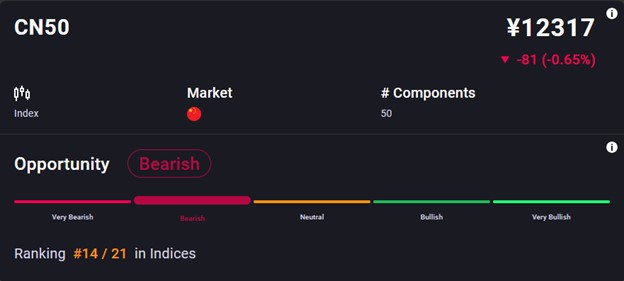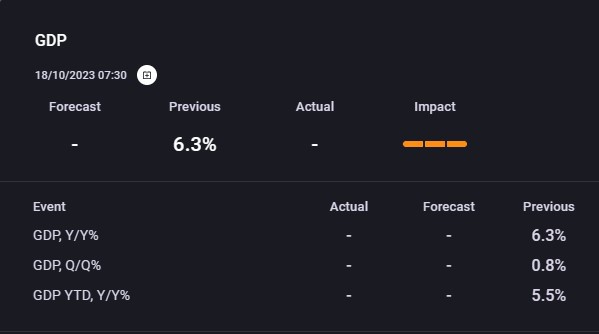The world had just got accustomed to China’s rise as an aggressive and assertive power on the global stage, when Xi Jinping decided to pivot away from what came to be known as “wolf warrior” diplomacy. The authoritarian leader appeared a little more sheepish at the beginning of this year, condescending to roll back his strict zero-covid policy and extend his hand for a friendly handshake with the US. But just as the world was beginning to breathe a sigh of relief, Jinping made a U turn. What’s changed in such a short span of time?
Whatever Grabs Xi’s Fancy
Xi has cemented his position as China’s premier for at least a decade. In October last year, Jinping secured his third term, becoming China’s longest-serving leader since Mao Zedong. For this, he removed the constitutional two-term limit on presidency. Age and other restrictions that could prevent him from continuing as China’s president have also been eliminated. So, Jinping is here to stay.
The Chinese premier also consolidated more power than his predecessors by letting go people who did not subscribe to his views, keeping only his loyalists in the party. When one man calls all the shots for the entire nation, there is bound to be some degree of whimsy.
Xi Pivots to Turning Foes to Frenemies
The US-China trade war under Trump’s presidency turned into a cold war with Biden assuming office. The relationship was further estranged when China refused to condemn Russia for its invasion of Ukraine and even criticised the sanctions imposed by the US saying that would “only make people suffer.” The US and China were at loggerheads again over microchips that power electronic devices.
And then the economy took centre-stage. Overwhelmed by the global economic slowdown and prospects of recession, the leaders of the world’s two largest nations decided to cast aside their differences and de-escalate tensions between them. Jinping was forced to come around, as China was facing domestic and international conditions that were significantly worse than he had ever experienced during his tenure. The two premiers even signed a joint statement to boost cooperation on combating climate change and increase renewable energy.
The US wasn’t the only country to revel in China’s overtures. The red dragon also thawed its relationship with Australia, after a three-year freeze of the relationship between Beijing and Canberra. China also went out of its way to amend relations with the EU. It offered to rescind sanctions imposed on the EU if the bloc agreed to ratify the China-EU investment agreement. French President Emmanuel Macron visited China and inked several significant business deals.
Crouching Tiger, Hidden Wolf?
Jinping’s overtures seem to be a façade, while the leader continues his hostile foreign policy. The red dragon recently updated its anti-espionage law to be sweeping, encompassing not just state secrets but all “documents, data, materials, or items related to national security and interests.” Does China really see spies everywhere? The country has put up posters with a hotline number for reporting suspicious individuals. This has raised concern in the business community. Foreign businesses now face an even more hostile environment in China.
The hunger for control of China’s “supreme leader” is at odds with the pragmatism that defined the country’s reopening from covid lockdowns. His attempts to boost “common prosperity” are slowing economic growth.
While China’s President seesaws between friendly and hostile moves, one thing is clear. Given the need to stimulate the domestic economy, Jinping has abandoned the pugnacious tone that characterised its relations with Western nations, especially the US for almost a decade. In August 2023, he held back from giving a speech at the BRICS Summit in South Africa. A month later, Jinping skipped the G20 Summit in India, the first of this premier forum that he has missed since coming to power in 2013. Is Beijing trying to evade confrontation or simply sending out the message that global collaboration is insignificant for China’s growth?
What’s the Endgame?
As Xi keeps blowing hot and cold, China is quickly losing friends. While North Korea and Pakistan are China’s BFFs, the country doesn’t have too many supporters. Although the red dragon voiced its support for Russia when it invaded Ukraine, Moscow keeps Beijing at arm’s length. China has also aggravated practically all its neighbours, including Vietnam, Taiwan, Japan, India, Nepal, and Mongolia. All these relationships are strained for one reason – territorial disputes. Xi Jinping’s strategy seems to be rooted in the belief that military strength can fend off all threats, including economic woes.
China plans to push out foreign companies, develop technology indigenously and rely on its domestic market for growth. Jinping’s statements seem to suggest that the economic slowdown is a short-term challenge.
Meanwhile, the economy continues to reel under the pressures of spiralling debt, soaring youth unemployment, and real estate insolvencies. Souring foreign relations is taking a toll. The country faces weak overseas demand. China reported an 8.8% year-on-year decline in exports in August, the fourth consecutive month of decline. The bearish sentiment for China is also reflected by Acuity’s AssetIQ widget.

Traders can also watch economic data releases and their impact right from the sentiment chart in the widget.

Although the Chinese economy is much weaker than it has been in a long time, the country has a way of rising like a phoenix. It has done that several times in its five-thousand-year history. After months of weakness, the latest data releases indicate some stability in the Chinese economy. For the first time in six months, China reported expansion in factory activity in September, with growth in production, new orders, and employment. The country’s retail sales growth also accelerated to 4.6% year-on-year in August, from 2.5% in the prior month. After a 6.7% contraction of profits at industrial firms in July, the red dragon reported a surprise increase of 17.2% for August. The country also seems to have emerged from deflation.
All these improvements could be temporary and a relapse highly probable unless Xi Jinping acts soon. The Chinese economy needs policy support.
The World Bank has projected China’s economic growth at 5.1% for 2023 and a slowdown to 4.4% in 2024. The report suggests stronger structural reforms, including a further relaxation of the “hukou” system, which restricts the movement of workers within different regions of the country. For sustainable growth, China must take measures to revive both consumption and investment, the World Bank says. Higher regulatory predictability can boost investments in innovation.
There’s an urgent need for Xi Jinping to adopt more liberal economic policies, regain the support of major economies and reduce the swings in his stance for stimulating China’s weakening growth.

